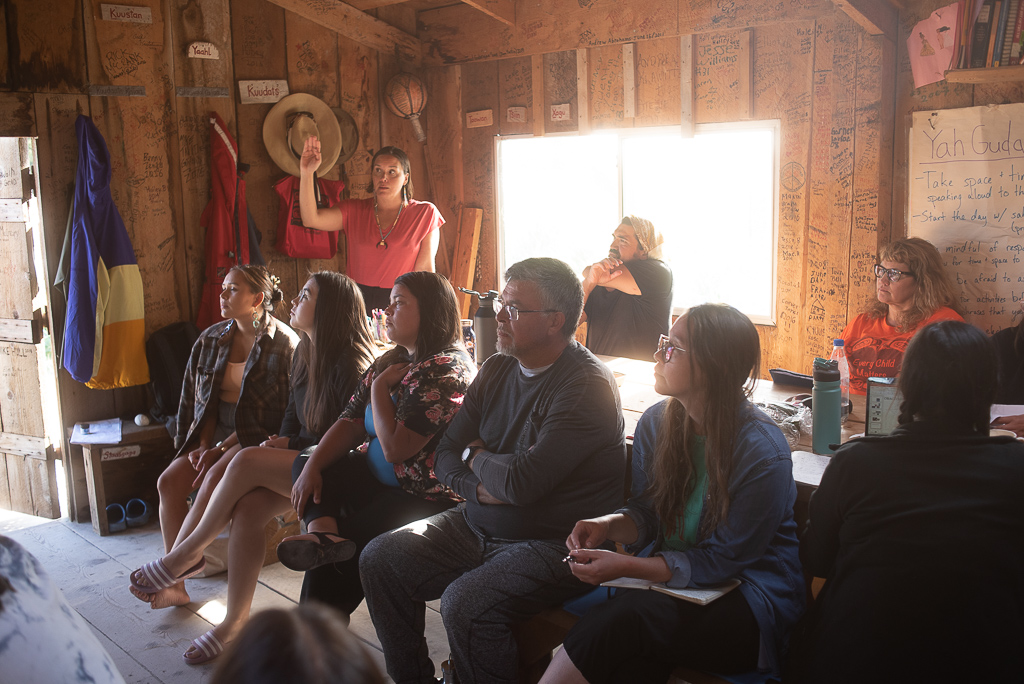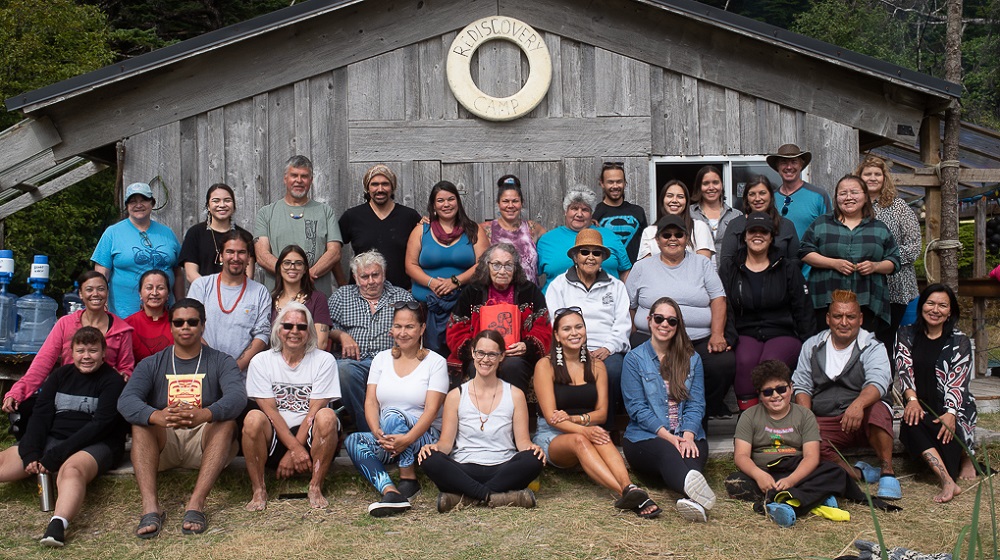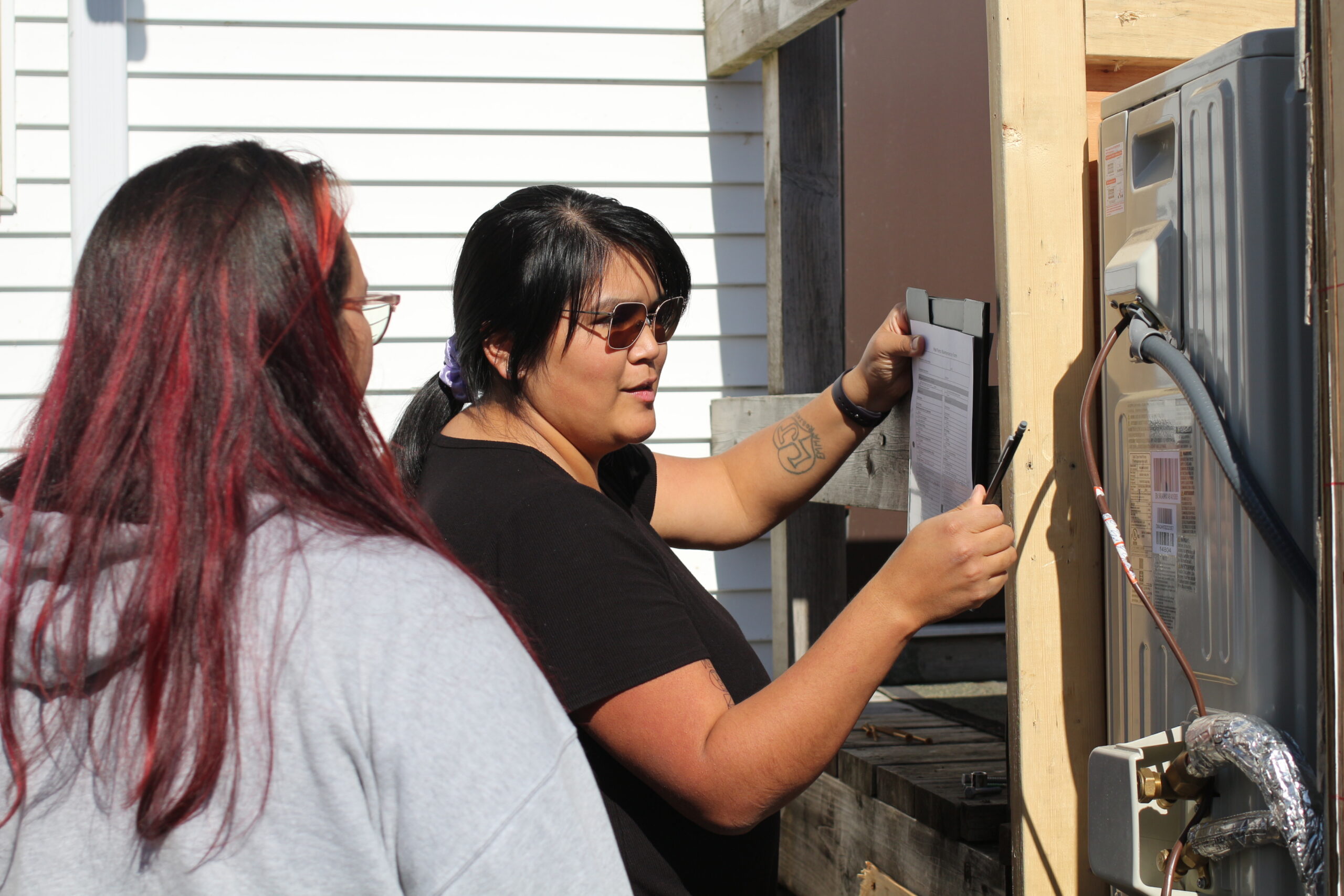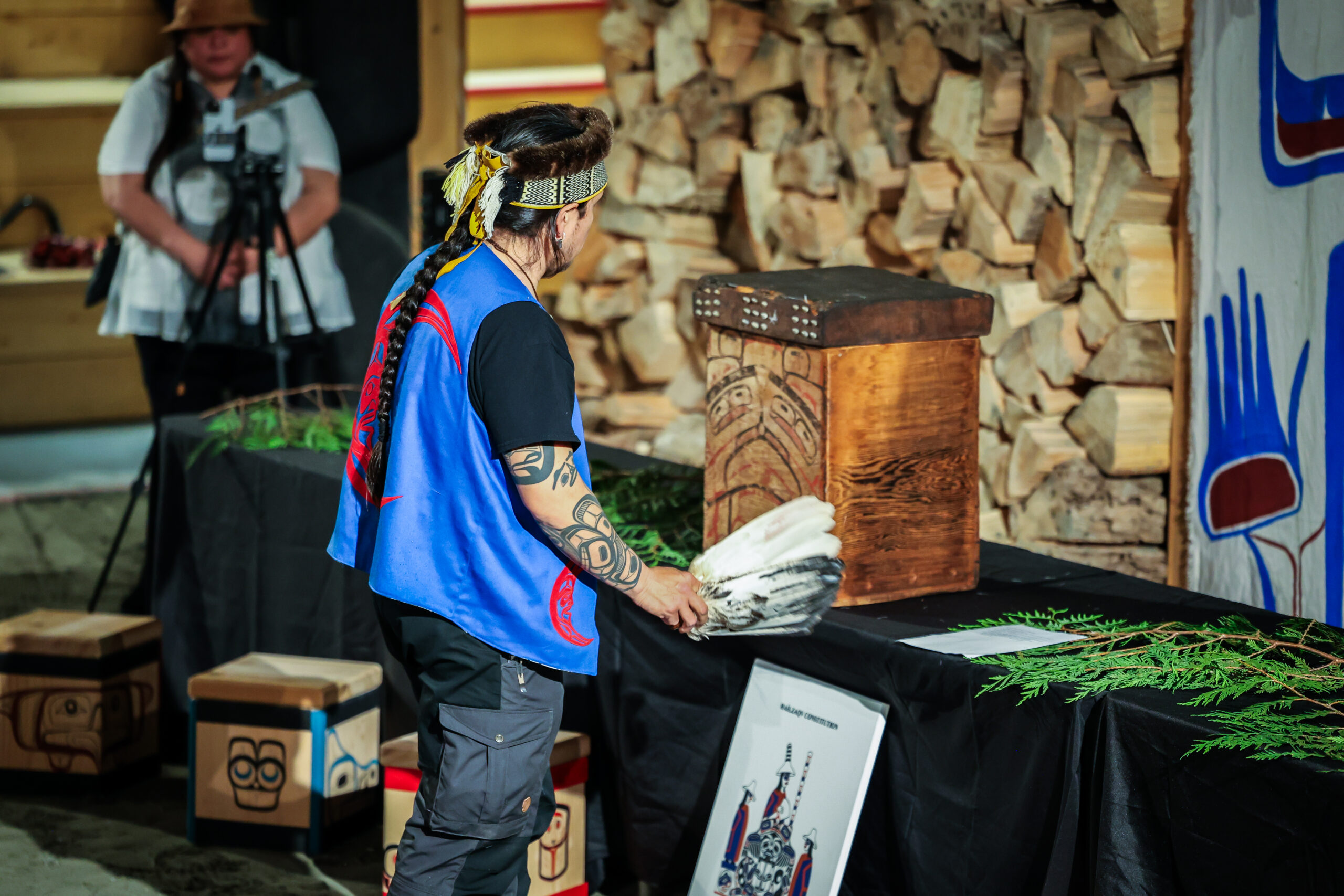Jasḵwaan Bedard, who helped facilitate a X̱aad Kil immersion camp at T’aalan Stl’aang on Haida Gwaii, says “instead of this language of loss, we have to focus on what we have, and how powerful it is that we have it.” Text by Emilee Gilpin and photos by Jeffrey Gibbs.
A cohort of Haida language learners gathered together at T’aalan Stl’aang—a two-mile stretch of sandy beach, accessible only by boat or helicopter—to be immersed, speak, listen, share and celebrate their journeys of learning their X̱aad Kil language.
Today, there are three dialects of the Haida language: an amalgamation of southern dialects formed into one dialect known as Xaayda Kil; an amalgamation of northern dialects known as X̱aad Kil; and another dialect spoken in Alaska also called X̱aad Kil, explains Jasḵwaan Bedard, who’s from the Tsiits Git’anee Eagle clan, and one of the coordinators of the language immersion program.
The week-long immersion camp was for learners of the X̱aad Kil dialect, both beginner and intermediate students who participated in a language program partnered with Simon Fraser University and other language programming within their community.
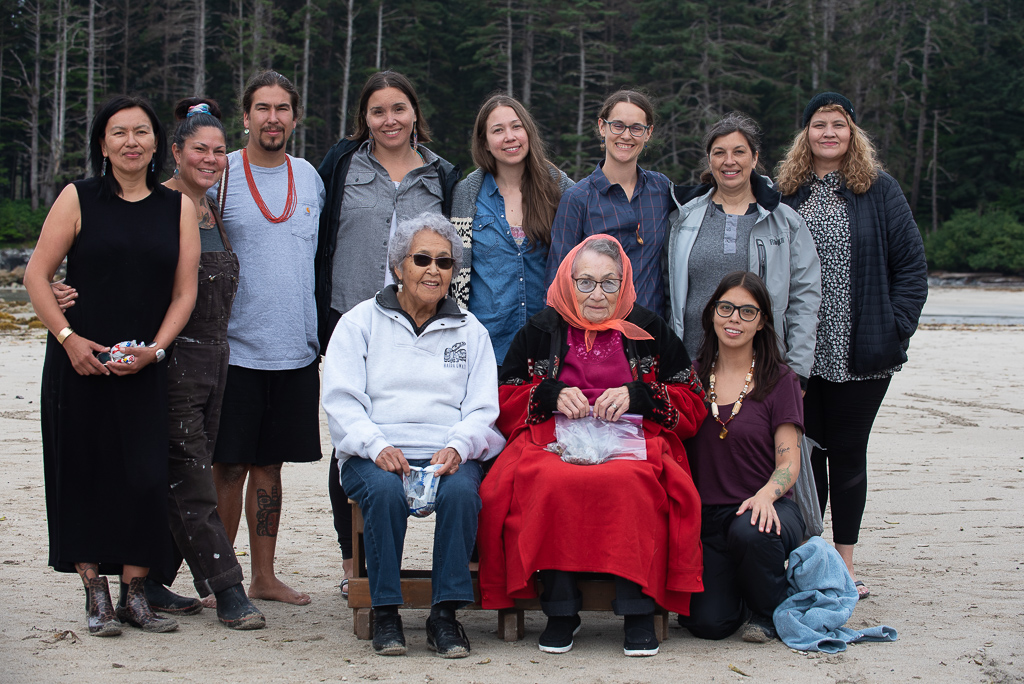
‘This is our language to speak’
Jasḵwaan says circumstance prevented the Elders to stay the whole trip, so the group adapted to having the intermediate speakers take a more leadership role.
X̱aad Kil learners and speakers shared and celebrated the work they’ve done to learn their language, and to change the narrative from “what we have lost” to “what we have,” says Jasḵwaan.
“If we’re speaking to each other in our language, however perfectly or imperfectly, that’s us speaking our language,” she says. “This idea that you’re only a speaker if you reach this level of education or perfection, is always going to hold us back. This is our language, our language to speak. Our teachers, our Elders who are no longer with us entrusted that we would be in this space and time now, teaching each other what they taught us, speaking to each other.”
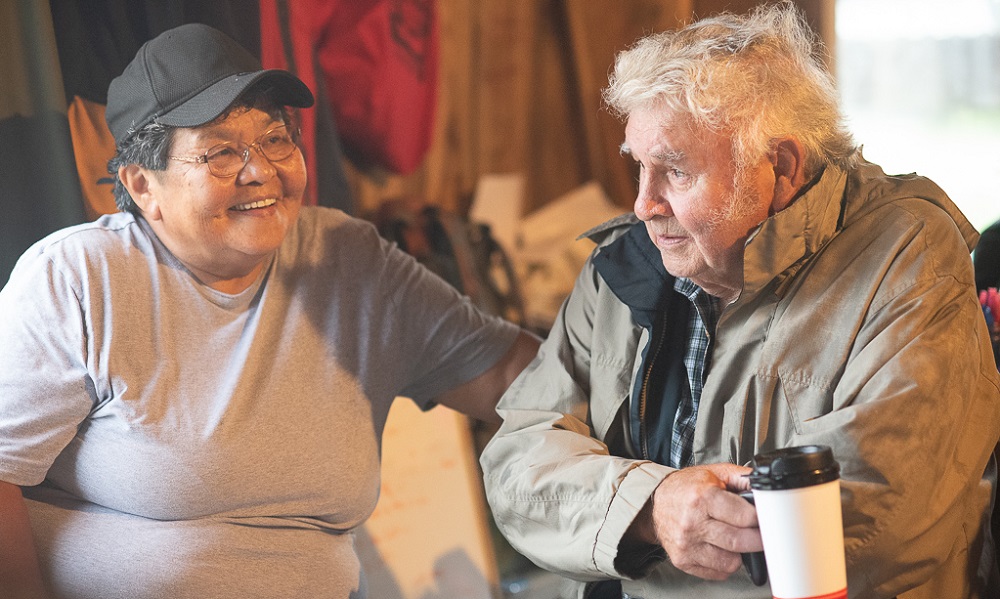
Jasḵwaan wanted to offer this to the camp, and shared these words on the first day of introductions and settling in. There is a “constant language of loss” around Indigenous language work, she says, perpetuated through colonialism, capitalism and academia.
“Turn away from these quantitative measures that colonialism has pushed on us… if we’re ‘proficient speakers,’ if we’re ‘fluent,’ if we’ll ever be fluent… this type of thing I found to be poison-like in our journey, and I want to rewrite and shift that narrative for all communities doing language work,” Jasḵwaan says. “Instead of this language of loss, we have to focus on what we have and how powerful it is that we have it, and it will keep building on itself.”
‘We can sense our ancestors with us’
When everybody arrived on the first day, they introduced themselves, discussed how the camp would go, talked about mentorship, intentions, creating a safe space and Haida laws—Yahguudang (Respect), Gin ‘waadluuwaan gud ahl ḵwaagiidang (everything is connected to everything else, tll kyaanang tlaagang (asking first), Tll yah dah (to make things right).
The group mapped out the camp for those who had never been there or needed a reminder, with the X̱aad Kil names for all the longhouses.
The camp took place where the annual Rediscovery Camps take place, with much support from the Rediscovery team, including cooks who participated and kept the group fed during their stay.
Activities changed over the days, but the group had a chance to be immersed in their language while completing important and relevant tasks, while going on walks, playing games. It was also a chance for people to heal and to let go, Jasḵwaan says.
Today, Jasḵwaan is both the Haida Language and Culture Curriculum Implementation Teacher for School District #50 Haida Gwaii and a third-year PhD student focusing on Language Revitalization. She says she only knew a bit of her language growing up, thinking it was something “older folks only spoke amongst each other.”
“I didn’t see anyone young speaking the language, I didn’t think it was possible,” she says. “I heard terms of endearment, funny terms, colloquial terms, but didn’t hear anyone speaking around me.”
As she embarked on her and her family’s learning journey, working closely with precious Elders Stephen Brown and Primrose Adams, she came to understand how important it was, for anyone who was engaged on their own journey, to speak the language, hear it and be surrounded by it.
The camp was a “group think,” she emphasizes, the product and energy of the many people committed to breathing life into their language.
“We all have something to offer,” Jasḵwaan says. “We all have a gift we bring when people come together, learning our language together… When we’re a part of this powerful group, we can sense our ancestors with us, that they imagined a time like this.”
